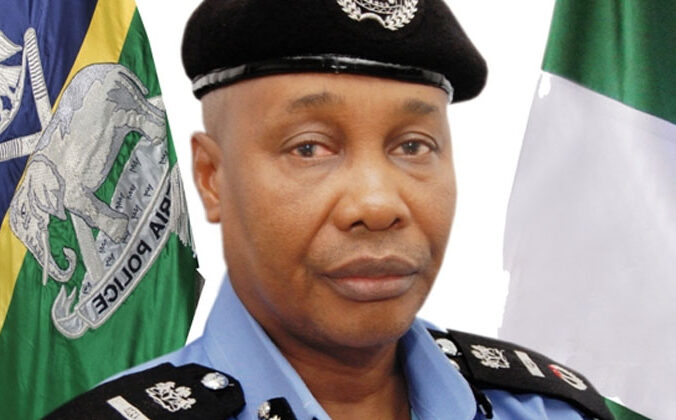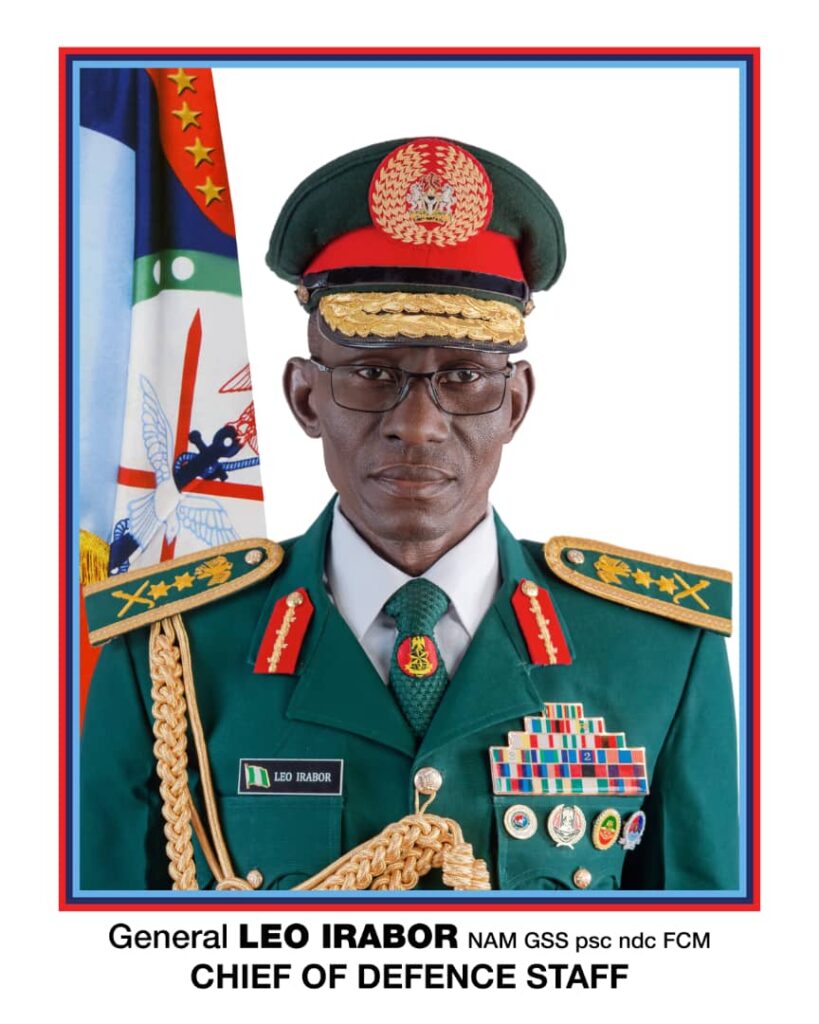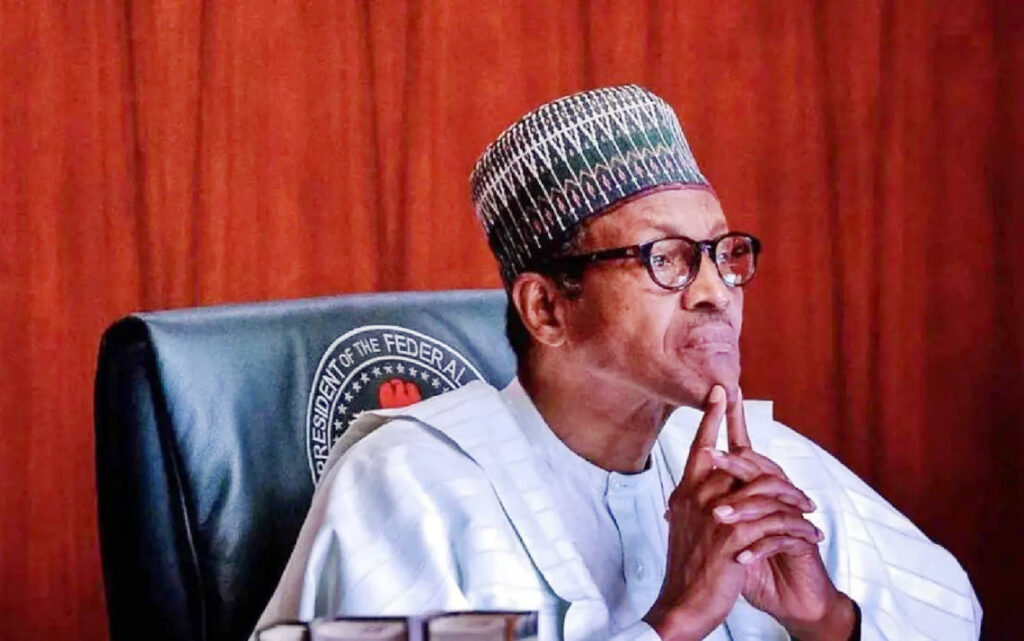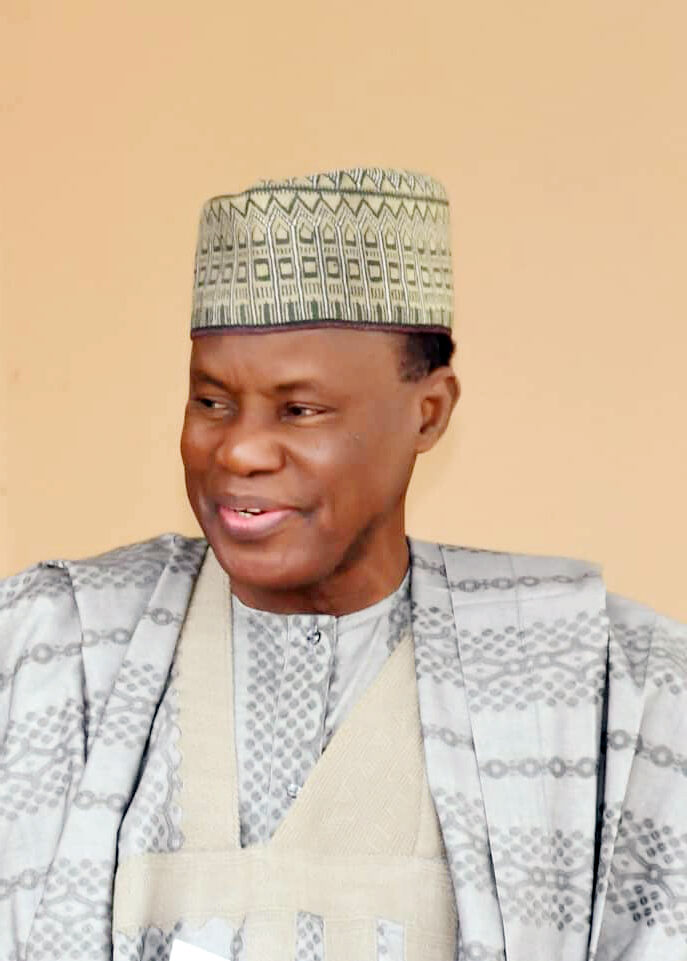National Insecurity and the Quest for Sustainable Agricultural and Economic Development in Nigeria.
By
Professor Jude Ejike Njoku
Former Vice-Chancellor, Federal University of Technology, Owerri, Imo State.
INTRODUCTION
Insecurity is one of the greatest and most intractable challenges facing Nigeria and Nigerians at the moment. It has grown excessively in complexity and diversity over the past one decade and more. Hardly a day passes without reports of one security breach or the other in almost every part of the country, indeed, insecurity has become pervasive in Nigeria, and has basically assumed the nature, character and status of a civil war, without any clearly defined war front.
Insecurity, banditry, kidnapping, armed robbery and herders attacks which hitherto were localized are now everywhere. While insurgency remains largely in the North-East, banditry and kidnapping, and to some extent, attacks by Fulani herdsmen, are borderless.
The phenomenon of “unknown gunmen” has also reared its ugly head in mostly the South-Eastern states, while ethnic agitations in the South-East and South-West, have added to the tension fear and insecurity in the country,
The result is unbridled and wanton destruction of lives and property all over the country. Fear, tension, hatred and near-anarchy now pervade the air, leading to large-scale disruption of social* and economic activities in the entire country,
All these take a heavy toll on the economy. The agricultural economy is particularly adversely affected both in terms of output loss and disruptions along the agricultural value chain. These in turn have multiplier effects on growth and development of the Nigeria economy.
There is therefore genuine, real and great concern among all Nigerians about how to end the rising level of insecurity in the country which is also threatening the very fabric of the country’s continued existence as a united entity.
To be able to seek solutions to this hydra-handed cankerworm, known as insecurity, it is important to define its magnitude and ramifications, isolate its causative factors and determine how it has impacted on sustainable agricultural as well as overall national economic growth and development of Nigeria.
MAGNITUDE OF THE INSECURITY CHALLENGE
• It has been asserted that “violence can be sustainably prevented or reduced if there is an improved awareness of the magnitude and negative impact of the conflict” (Omeje, 2021)
• Based on this perspective, the magnitude of Nigeria’s insecurity challenge is, at this point, established as a prelude to determining the negative impact on the economy,
• Survey by the United Nations Children Education Fund : (UNICEF) and the Universal Basic Education Commission (UBEC) of Nigeria, show that Nigeria ranks topmost among countries in the world with the highest number (10.1 million) out-of-school children.
This is partly attributable to recent rising incidents of kidnapping, abduction of pupils/students, increased activities of insurgents, and general insecurity in the schools.
Since the widely-publicized abduction of 276 Chibok School girls in Borno State by Boko Haram terrorists, more terrorist groups have resorted to mass abduction of students. Save the Children International, a Global Coalition to Protect Education from Attack (GCPEA) reports that between January and August 2021, over 1000 children were abducted by terrorists in Nigeria.
Also, a recent UNICEF report, has it that about 1000 Nigerian students have been abducted since December 2020. These students spent an average of 88 days in the hands of their abductors before being released.
Investigations by Vanguard newspapers additionally show that about 1,065 students, across the country, have been kidnapped, 6 killed and 276 held hostage in seven months. All these were from secondary and higher institutions in the North-Western and North-Central states of Nigeria.
Kaduna is the worst hit with 206 abductees and 51 deaths, followed by Sokoto, Borno, Zamfara and Adamawa. In Sokoto State, 60 persons were kidnapped, while two persons were killed. Borno State recorded 45 deaths, while Zamfara, Adamawa and Plateau States had 43, and 41 and 24 deaths respectively, Imo State also became a hotspot of killings by “unknown gunmen” during the period under review.
In all, 250 people were killed by bandits, militants, herdsmen and unknown gunmen, while 14 people lost their lives in the hands of the police, military officers and customs officials.
SBM Intelligence, – a leading Research Consultancy Group that is versatile in primary data collection and analysis and provides clarity on economic/ political and social issues in Nigeria and West Africa, has also reported that about 2,370 people were abducted in the first half of 2021. Niger State, with 643 people, had the highest number of kidnap cases, followed by Zamfara State with 519 victims, and Kaduna State with 360 victims.
In what was described as 38 Days of Morrow, Sunday Vanguard reported that 50 policemen were killed by bandits and other criminal elements, and kidnappers demanded over N1biliion as ransom for 321 kidnap victims, while 211 others were killed by bandits, within 38 days, across the country.
SBM Intelligence Report shows that: 13 persons were abducted daily in Nigeria during the first half of 2021.
It is no longer a well-to-do people that are at risk of abduction, but also, poor villagers and ordinary school children.
Another report by Armed Conflict Location and Event Data Project shows that Nigeria lost about 8,343 persons to farmers-herders conflict since 2005. These casualties were from 1,350 attacks spread across 16 states of the Federation. Benue State topped the list of states with 2,539 deaths from 303 most violent attacks, followed by Plateau with 2,130 persons dead in 279 attacks. Other states in order of severity were Kaduna (1,188) Taraba (755,521) lives and Nasarawa (160,111) in 93 attacks, respectively. Other states captured in the report are Adamawa, Katsina, Zamfara, Niger, Kogi and Ogun States (Dirisu, 2021) Another report by the UK-based, Tony Blair Institute for Global Change shows that between 2018 and 2020, 1,868 security personnel were killed by Boko Haram. This followed the splitting of Boko Haram into three distinct and more deadly factions, namely Ansaru in 2012, Islamic State of West African Province (ISWAP) factions, and the original JAS group that still remained intact. The split made them more powerful and deadly instead of weakening them.
Worsening insecurity has led to the displacement of about 2.3million people across Nigeria, according to Nigeria’s Minister of Humanitarian Affairs. Recent reports from Sokoto State indicate that 50,000 residents of 17 communities in Sabon Birni Local Government Area, who relocated to Niger Republic because of incessant attacks by bandits, have refused to return home despite entreaties by government officials. They believe that government is incapable of protecting them.

IGP Baba Alkali

In South-East and parts of South-South, there were relentless attacks by unidentified gunmen on security personnel and federal establishments. The Guardian reports of May 31, 2021, indicate that 54 persons were killed by suspected, herdsmen and gunmen in Nasarawa and Oyo. A newly completed INEC office at Okwudor, Njaba LGA, Imo State was also set ablaze by gunmen.
The Eastern Security Network (ESN), the militant arm of the Indigenous People of Biafra (IPOB), were active against the Fulani killer herdsmen/ who occupied forests and were destroying farms and killing farmers with the intention of taking over their lands. As counter to the activities of the ESN, there was massive military deployments to the South-East that generated fear and tension. Thousands of innocent young men, and sometimes, women, were taken away from their homes under the guise that they were IPOB members, and either detained illegally or killed extra-judicially.
A new dimension has been introduced by the sit-at-home order imposed sporadically by IPOB on all the South-Eastern States over the past few weeks, and whose enforcement has created fear and tension as well as violence and death of some innocent citizens. It has also adversely affected the economy of the South-Eastern-States.
It is estimated that about N10 billion ($19.96 million) was demanded as ransom for kidnap victims during the first half of 2021.
All over the country, a large number of farmers have abandoned their farms due to rising insecurity caused by Boko Haram attacks and conflicts between farmers and herders. In March 2021, the Benue State Governor for instance/ was attacked by armed herders when he visited his farm.
RESPONSES TO INSECURITY CHALLENGES
It is important to know what-the responses of government, individuals, organizations and indeed key stakeholders in Nigeria and beyond have so far been to these existing insecurity challenges. These responses provide some guides on efforts -made, their adequacy or otherwise and what the views and feelings of Nigerians are, and what solutions are left to be proffered.
Government is the first port of call. Government, at all levels, has the constitutional responsibility, for the protection of lives and property of its citizens.
Government’s initial response has been and continues to be the deployment of military force to quell terrorism. The combined team of security forces, including the Army, Air force, Navy, Police, Directorate of State Security have been used to fight insurgency, banditry, kidnapping and other forms of crime. Government severally has claimed that it has degraded Boko Haram insurgents, and is winning the war against banditry, kidnapping, insurgency and killer herdsmen. Yet the war continues to linger.
It is possible that what they have been winning is series of battles but have not won the war. What is needed, however, is to win the war against insecurity in totality, The consensus of opinion among Nigerians generally, is that the government has failed colossally in effectively fighting off terrorists and protecting the lives and property of Nigerians.
In fact, the view is very strong that government is unwilling and unable to fight insurgency, banditry, kidnapping, killer herdsmen to extinction. The view is quite strong that government is in fact, colluding, collaborating, encouraging, directly or indirectly with these armed marauders in continuing with their nefarious activities.
Allegations have also been made that some very powerful government officials are sponsors and supporters of some of the bandits and have soft spots for them.
Treatments meted out to insurgents and agitators for self- determination have also been judged uneven and discriminatory,
Some stockholders have advised government to seek external security assistance to fight terrorists to submission but others consider this inappropriate and capable of being counter-productive.
Thousands of Boko Haram fighters have recently surrendered themselves with their arms to government and government is proposing granting them amnesty, but there is opposition to this on grounds that the repentant insurgents may not have genuinely repented.
Yet, others, including Sheikh Ahmad Abubakar Gumi, a renowned Muslim cleric, advised that amnesty, dialogue and reconciliation will bring ultimate solution to the problem of insecurity, particularly in the northern states of Nigeria.
The ban on open grazing of cattle as resolved by the governors of
the Southern States of Nigeria, is a viable proposal with potentials to end the herdsmen attacks of framers in Southern and North-Central States of Nigeria, However, the Federal Government is opposed to this move, despite the fact that open grazing is an old and outdated technology.
Loss of faith in the ability and willingness of the government to fight insecurity has led to proposals for citizens to be allowed to carry arms in self defense, but this has been countered by arguments that such could lead to anarchy.
Overall, it appears that the problem of insecurity in Nigeria has continued to grow more complex, complicated, hydra-headed and pervading that both the government and its armed forces are overwhelmed and have lost control. There is fear that if no drastic action is taken, the terrorists might overrun the country and Nigeria could be another Afghanistan.
THE CAUSATIVE FACTORS OF INSECURITY
Just as the incidence of insecurity has become increasingly more complex and multi-dimensional, so also are its causative factors. A few major ones can, however, be isolated. Permit me to begin with an editorial comment by Business day of July 15, 2021, that “most of the security challenges have emerged partly as a result of multiple socio-economic injustices, including but not limited to marginalization, unemployment, social inequality
political exclusion, corruption, economic deprivation, unequal allocation and the distribution of state resources.
Issues of socio-economic injustices are directly linked to poor governance. In this regard, one agrees with the Arewa Consultative Forum (ACF), that has blamed Northern Governors for the high level of insecurity, particularly in the north and other parts of the country because of their abandonment of the youths from the region over a long period of time. Such abandonment has resulted in banditry, kidnapping and herders/farmers clashes, which has also spread to the other parts of the country. The failure of the Northern Governors to address the negative social-economic situations of the youths pushed most of them into criminality.
•:
Weak and Inept leadership that is incapable of insuring fairness/justice and equity for all and sundry. In a recent presentation, the Governor of Sokoto State, Alhaji Aminu Tambuwal, (2021) has laid strong emphasis on leadership as a factor determining the extent and level of insecurity. Most of the agitators for self-determination are products of poor leadership style and practice.
Poor security funding and deficient preventive intelligence gathering systems are some of the major reasons for Nigeria’s inability to solve its rising insecurity problem. Stockholm International Peace Research Institute reports that in the last ten years, Nigeria spent N6 trillion on security, with a military allocation of $1,90 billion in 2019, This allocation is only second to South Africa’s $3.50billion and Algeria’s military expenditure of $10.30billion the same year.
However, South Africa has a population of about 59.62 million people, while Nigeria has a population of over 200million people.
Thus, South Africa’s $3.50 billion military expenditure translates $58.705 per capita, while Nigeria’s $1.90 billion military expenditure translates to only$ 9.50 per capita. It is therefore clear that Nigeria’s security spending per capita is grossly inadequate.


Rampant and increasing use of hard drugs has contributed
significantly to rising level of criminality and insecurity in the country. Recently, President Buhari described drug trafficking and abuse as
worse than insurgency and banditry. It has aided an emerging culture of violence perpetrated by youths, militants, cultists and herdsmen-farmers conflicts and other factors of insecurity.
Deep rooted economic problems are at the heart of Nigeria’s rising insecurity problems which government s yet to meaningfully resolve. The economy is not growing fast enough to create opportunities for a fast growing population. Poverty has risen to record level. According to a Brookings Institution Report, Nigeria is home to the world’s largest population of poor people of 87million.
Poverty cannot be treated in isolation as a major cause of insecurity. BORGEN Magazine, a US-based media house has described Nigeria as the poverty capital of the World in 2020. Poverty rate stands at 40% of the population in Nigeria/ according to the National Bureau of Statistics (NBS). Most Nigerians are poor, hungry, malnourished, angry, frustrated and disenchanted, thereby constituting a large camp of potential terrorists/ criminals, bandits and kidnappers.
Over the years, unemployment in Nigeria has continued to rise. It stood at the unprecedented level of 33.3% in 2020. This is mainly because the private sector which is the source of employment in developed countries is stifled by ineffective government policies and difficult operating environment. One out of every 10 Nigerians in the country’s labour force is either unemployed or under employed. Bloomberg has ranked Nigeria as second in unemployment in the whole world in 2021.
• Demoralized and Ill-equipped Army has led to the inability of military to overrun increasingly sophisticated insurgents and bandits.
• In a recent interview, the Chief of Army Staff (COAS) disclosed that funding constraints, diplomatic and other bureaucratic bottlenecks are responsible for the country’s inability to acquire sufficient and modern military hardware needed to fight banditry, kidnapping and other security breaches in Nigeria.
• We have a frustrated, demoralized, overstretched and poorly remunerated police force, that is also insufficient In number.
In general, members of the Nigerian Police Force are insufficient in
numbers. They are also frustrated and demoralized by poor working conditions including poor remuneration, in addition to being over stretched by low numbers. They are, therefore, ill-motivated to put up high performance.
The Nigerian Army is also over stretched. Officers and men are often overwhelmed with many of them being in the battle-field for many years. Low morale and poor fighting spirit is the result. There are also issues with recruitment process into the security agencies. This process is often compromised by corruption and extreme politicization. Some are illegally retained at the end of their tenures. Such officers become partisan, corrupt, incompetent and, therefore, incapable of providing the leadership needed to effectively fight and defeat insecurity.
Some heads of security agencies have been accused of inability to account for security funds meant for purchase of arms and payment of the allowances of their personnel in the battle-field, thereby, demoralizing such personnel and exposing them to danger in the hands of better armed bandits and terrorists.
A report by European Facility (EPF) showed that between 2015 and 2020, terrorists launched 500 attacks on the military bases and formations of the Multi-National Joint Task Force (MN3TF) and killed 2,368 soldiers using weapons captured from the soldiers of the joint force.
Stockpile of arms seized after attacks sustained the insurgents for the past 12 years. Corruption and diminished morale are responsible for this colossal loss.
Debased Value System: Existing traditional values that placed high premium on honesty, integrity, hard-work, respect for traditional institutions and those in authority as well as sanctity of life have become debased and thrown over-board. This has heightened the level of criminality and reinforced insecurity.
Religious Intolerance: this has also created a major divide among the major religions in Nigeria, and fuelled insecurity.
External Influence of Foreign Terrorist Groups: Terrorism in Nigeria is no longer localized. Foreign terrorist groups such as Islamic State of West African Province (ISWAP), Al Qaeda and ISIS have infiltrated Nigeria to reinforce Boko Haram and other terrorist groups, thereby making it more difficult to’ end insurgency and terrorism in all their ramifications. (To be continued Next week)

